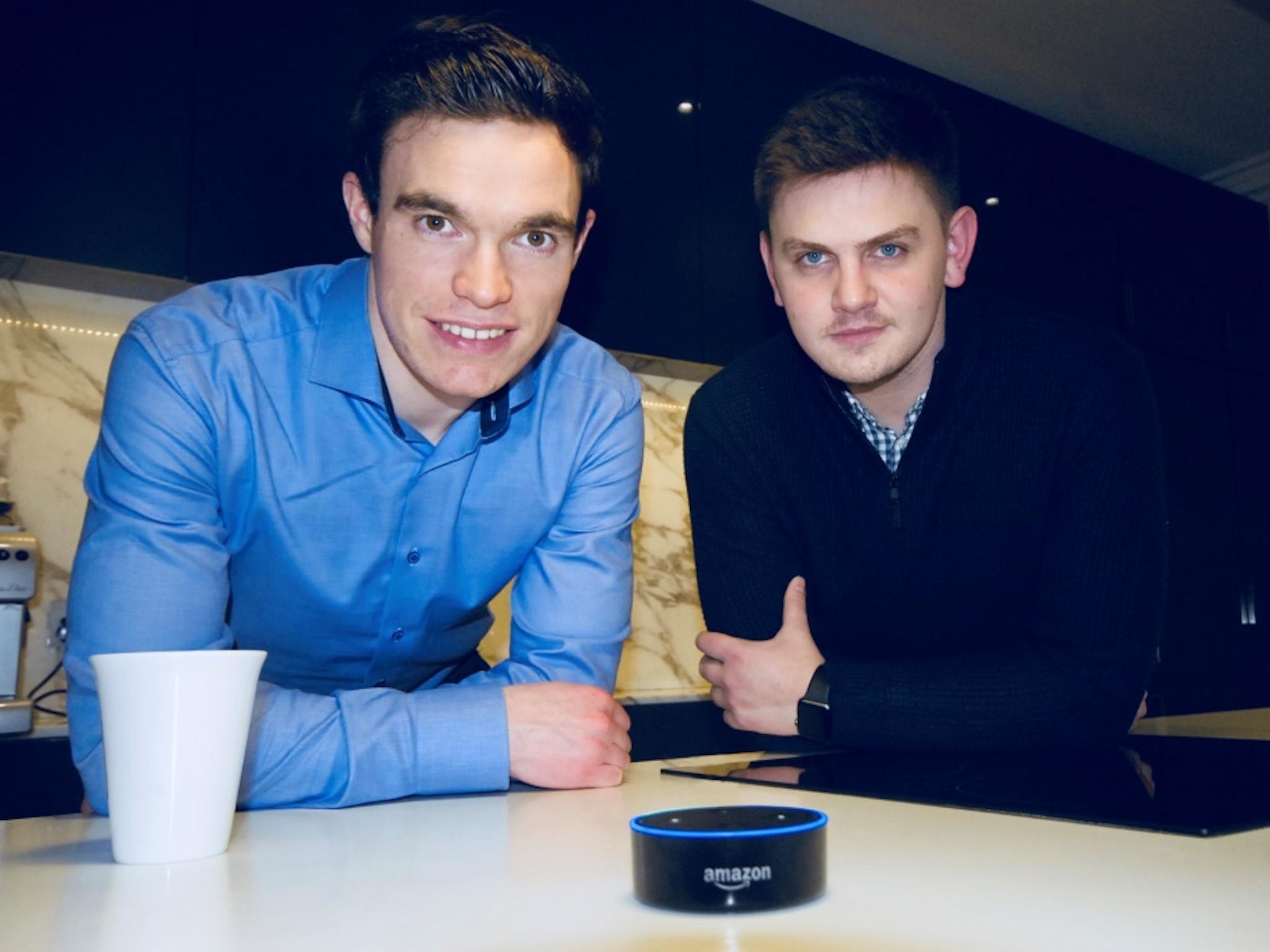News Over Audio: The audio news startup for people who don't have time to read newspapers
Since May, NOA has been streaming recordings of professional broadcasters reading a selection of articles from media partners, including The Independent

Shane Ennis knew he and co-founder Gareth Hickey were onto something with News Over Audio (NOA), their audio news-streaming startup, when Amazon launched Alexa.
“We realised this wasn’t going to be just an audio app; that there were other places where this content could live,” Ennis says down the phone from Dublin.
The two founders came up with NOA to make newspaper content live beyond the page. Since May, NOA has been streaming recordings of professional broadcasters reading a selection of articles from media partners, including The Independent, The Financial Times and the Irish Times. Bloomberg joined the service in June and the founders say the publisher count will double in 2018.
But even they were surprised by the timeliness of their idea. From December, users can connect to NOA through Amazon’s Alexa. Its founders envisage a future where users wake up to the news through their alarm, listen on their way to work in their connected car, and activate Alexa to keep reading them stories through the workday.
Ennis, now 26, and Hickey, 27, conceived of NOA as a way to keep up with newspapers for people who don’t have the time to sit down and read them. They were both in their early twenties at the time, with fast-paced, corporate careers. Hickey worked as an equity analyst at Susquehanna International Group, a financial firm, and Ennis was working at eBay as a resourcing analyst and freelancing as a developer.
“We just couldn’t find the time to read,” Hickey says. “We were too busy or perhaps too distracted. Audiobooks addressed this issue in one market, but journalism lacked a similar solution.”
They wanted to be “in the know, to be informed”, Hickey says. “Shane knew about what was current in technology, science and business, me about what was going on in Ukraine, the Middle East, and politics,” he says. “Like many millennials, we felt lost in the constant stream of headlines and information.”
In 2014, they came across the Economist’s audiobook edition, a spoken-word version of the magazine, and “fell in love”, Hickey says. “Our natural reaction at the time was simply to see who else provided a similar audio-journalism offering, albeit on a larger scale – essentially, what we wanted to know was: who was the Spotify of journalism? After a while searching one evening we realised that the answer was nobody.”
So why could it not be them?
Ennis, who had paid his way through university by developing websites, began working on an app that could provide users with audio versions of newspaper and magazine articles. Hickey meanwhile concentrated on building a network of publishers and a few investors to launch the project. “We pretty much designed, developed and built the brand between the two of us, the idea is from the two of our skills,” Ennis says.
Using their own money and a small amount of seed funding from several investors, Ennis and Hickey built a system where they could upload selected articles for a team of professional readers. The readers – there are currently five spread across the Ireland and the UK – send back the audio files which are uploaded for listeners, often on the same day an article is published.
They based the business model loosely on Spotify, where users have access to several articles for free alongside advertising, before they are asked to “convert” to a subscription of €8 (£7) a month. So far their conversion rate is around 30 per cent of users who listen to four or more articles per weekday.
NOA struck a deal with publishers to provide them with audio content in return for hosting that content on the platform. They timed the proposition exactly right, Hickey says, when many publishers were already expanding into podcasting and curious about audio: “The reaction from the publishers was very positive. They were all talking about audio and what their audio strategy was going to be; we heard those two words a lot.”
They worked with publishers to select articles for the service, but quickly discovered that opinion pieces and features, which read more like a story, work best. “Our early testing revealed that comment, feature, analysis and opinion pieces lent themselves far better to audio than, say, a more newsy article. Stories that are highly numeric or complex can also make for uncomfortable listening.”
At the moment publishers help the founders select articles that are doing well online, but there are plans to grow a team of editors to handle curation as NOA expands.
Ennis and Hickey are also nurturing relationships with other companies curious about Alexa. Within weeks of launching, the founders had been approached by a German carmaker about the possibility of integrating the service into its entertainment system. Hickey says: “We are early stages, I’m confident that we’re going in the right direction.”
Join our commenting forum
Join thought-provoking conversations, follow other Independent readers and see their replies
Comments
Bookmark popover
Removed from bookmarks